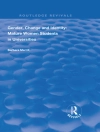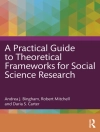This accessible text enables criminology and criminal justice students to understand and critically evaluate criminal law in the context of criminal justice and wider social issues.
The book explains criminal law comprehensively, covering both general principles and specific types of criminal offences. It examines criminal law in its social context, as well as considering how it is used by the criminal justice processes and agencies which enforce it in practice.
Covering all the different theoretical approaches that the student of criminology and criminal justice will need to understand, the book provides learning tools such as:
-chapter objectives – making the structure of the book easy to follow for students
-questions for discussion and student exercises – helping students to think critically about the ideas and concepts in each chapter, and to undertake further independent and reflective study
-′definition boxes′ explaining key concepts – helping students who are not familiar with specialist criminal law terminology to understand what the key basic concepts in criminal law really mean in practice
-a companion Website which incorporates a range of resources for lecturers and students.
Inhaltsverzeichnis
PART ONE: GENERAL PRINCIPLES
Introduction: What Are Criminal Law and the Criminal Justice Process There for and How Are They Used?
Actus Reus
Mens Rea
General Defences in the Criminal Law
Alternative Forms of Criminal Liability: Strict Liability, Complicity and Inchoate Offences
PART TWO: SPECIFIC TYPES OF CRIMINAL OFFENCE
Non-Fatal Assaults
Sexual Offences
Homicide
Property Offences
Conclusions: Where Are Criminal Law and Criminal Justice Going and Where Should They Go from Here?












